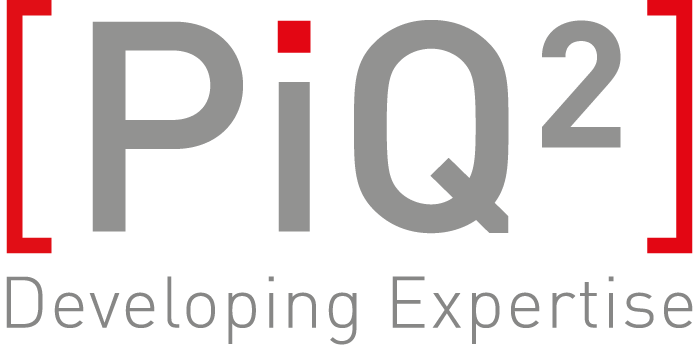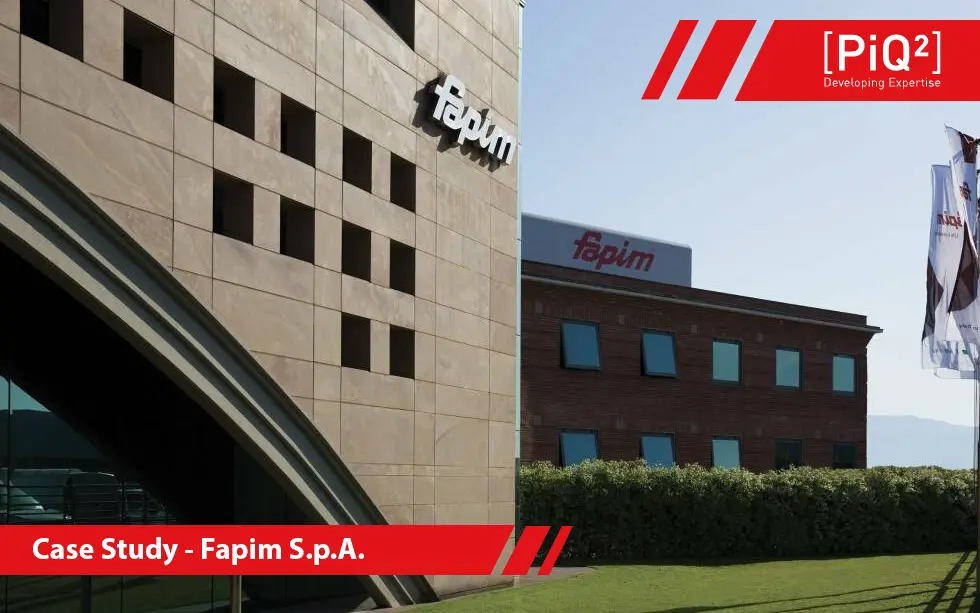Fapim S.p.A., a metalworking company founded in 1974 and based in Altopascio in the province of Lucca, Italy, is one of the world’s leading manufacturers of solutions and accessories for metal windows and doors.
In the event of the start of a new collaboration with PiQ², we interviewed Mr Matteo Tambellini and Mr Alessio Barbarini, Mechanical Engineers of Fapim’s technical department and designers of new moulds for die-casting. The two interviewees also collaborate with the production departments equipped with hot chamber machines for zamak, cold chambers for aluminium die-casting, as well as presses for plastic injection.
How did you approach PiQ² and the Castle suite?
After getting to know PiQ², we approached the Castle suite in 2020 when the need to train a new figure on “mould design and defect analysis” arose in our technical department. From there, the collaboration grew, increasing the courses for the technical staff. In 2022, the training was also extended to the foundry staff to enrich their highly practical work with valuable theoretical knowledge.
After the training, we decided to upgrade to the next step, so Fapim purchased the CastleMIND module by PiQ²: simulation software that allows optimising a project from its earliest stages, thanks to the calculation of specific fundamental theoretical parameters such as the cross-section of the casting gatings and the machine to be used.
The software is helpful to our company because it allows us to verify the upstream hypothesis and then validate designs and calculations, giving us a greater confidence during the entire product realisation process.
CastleMIND could be described as “pre-design” software. The software helps designers and gives them greater confidence in sizing the casting runners, exponentially enriching the user experience offered by traditional fluid dynamics simulation software.
What are the strengths of the CastleMIND module in your experience?
The qualities of the PiQ² software are many, but three have had the most significant impact on our work.
The speed: simulation setup takes a very short time due to its intuitiveness. It indicates which features, if any, should be modified, allowing an operator to update the 3D, then move on to fluid-dynamic simulation with greater confidence and avoid multiple hours of calculation.
This preliminary step streamlines the process and saves a lot of time.
The price: the price-quality ratio is very competitive. In addition to the undeniable quality of the software, the advisory service and very responsive customer service of the PiQ² team are great added values.
Pre-design phase: as mentioned before, at Fapim, we deeply appreciated the predictive capacity of PiQ²’s CastleMIND module during the mould design phase. That allows us to speed up processes and be more confident in the production phase.
Apart from process training, what about software training?
Along with the software activation, we soon received a couple of three-hour training lessons followed by a specific lesson on zamak and one dedicated to aluminium. We immediately had the opportunity to get hands-on and practice the software with the support of the PiQ² team.
The added value of the in-presence training came from the didactic approach adopted: critical points were sometimes dealt with directly in the foundry with the dedicated staff.
The training provided was fundamental, to the point that we had no difficulty using the software for the first time.
How was the training with the foundry perceived?
The training was appreciated since we are dealing with people with purely manual tasks, and being able to add theoretical concepts to their experience is definitely a plus. PiQ² uses a consultative approach aimed at developing in-house skills.
Ever since this training was given, even to the department heads, PiQ² has been perceived as a consultant: a reference point to be involved for immediate feedback, not only in the event of difficulties but also for a valued advisory on product industrialisation.
We are delighted with this start of collaboration!
—————-
Thanks to Matteo Tambellini and Alessio Barbarini for their availability and their words.
It is a great source of satisfaction for PiQ² to have the opportunity to talk to its customers and be of support at every stage of a project.
It is always of primary importance for PiQ² to collaborate with the customer to grow together without renouncing the quality of service, attention to detail and technical expertise that are the company’s founding values.
Thank you for the opportunity, and see you next time!

